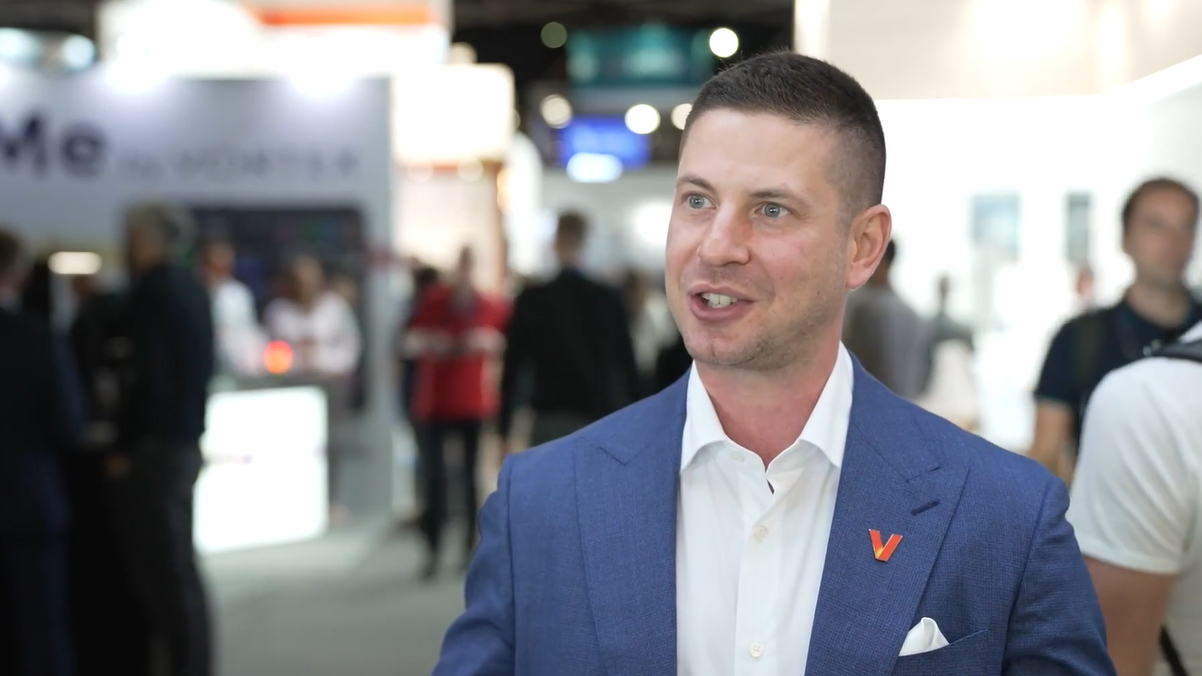IBC2025 Conference preview: Jens Richter, CEO of Commercial and International at Fremantle, will take part in a session that will delve into how Fremantle is evolving to stay ahead of a post-peak TV market by adapting financing models, strengthening partnerships, and utilising its long-running brands.
It has been another year of extraordinary change in the global media production world. Therefore, it’s appropriate that an IBC Conference session, taking place on Sunday 14 September from 10:15 to 11:15, will address this in the context of emerging technologies. The session, “Media 2025: Winners and losers in the new content ecosystem”, will also look at how these technologies are helping to establish and retain audiences. It will feature input from Thomas Gruber, Co-CEO of broadcast group ProSiebenSat 1 PULS 4, and Jens Richter, CEO Commercial and International at media production and distribution company Fremantle.
To better understand why the winners in the new media landscape will be those who can “adapt to evolving needs and innovate using emerging technologies while maintaining their core strengths”, the session will feature insights into Fremantle’s evolving approach to programming, partnership, and brand optimisation, as well as ProSiebenSat 1 PULS 4’s content strategy across Austria. Notably, ProSiebenSat 1 PULS 4’s strategy includes the development of locally driven programming formats.
IBC365 spoke to Fremantle’s Richter to find out more about the company’s response to an increasingly fragmented content environment, the renewed emphasis on more mainstream dramas, and expectations for AI’s impact on the production workflows of the future.
PEOPLE AND TECH
Richter agrees that the relative importance of new technology within the content production system has become significantly more acute in the last half-decade. He says: “In our case, we are fully embracing all kinds of new technologies, so it’s a really exciting space. For instance, we think that AI will have a huge impact on our industry from ideation and research to special effects production, post-production, and marketing. The whole chain of production will be impacted, and there will be very useful tools that we’re looking forward to.”
However, that’s by no means the only emerging area of interest. “There’s also the whole aspect of data and how we can use that [more effectively] in the future, as well as the entire space of delivery, which is changing drastically as well. There are tonnes of applications we see when it comes to the introduction of new technology.”
Yet, like many other broadcast and production organisations negotiating this unprecedented wave of changes, Richter stresses that everything must pivot around people – be they on the production team or watching at home. “We still believe [success] starts with people and ends with people. It’s a creative process, and audiences love people they can identify with on-screen.”
BACK TO “TRADITIONAL TV”?
Ironically, given the increasingly varied ways in which people consume content, it appears that there has been a slight swing back towards mainstream, brand-oriented production – on the drama side at least. Richter points out that this becomes more understandable when it’s viewed in the context of a partial return to older methods of monetisation.
“When streaming started, there was a real trend towards premium TV and niche audiences,” recalls Richter. “But then, a couple of years into streaming, that started to change, and there has been a move towards more traditional TV when it comes to programming. One of the big reasons for that is that all the streamers, except Apple, are now selling advertising. Subscription is also about serving premium niche audiences, [but if you move back to an advertising model] you need more advertising-friendly programming, which is very different.”
In particular, this calls for a return to highly established programme-making techniques, such as dramatic opening sequences and swiftly deployed “narrative anchors”. He continues: “There’s a lot of competition for eyeballs, and you need to ensure you anchor the audience before the first commercial break. Marketing is also very important for show launches, with an emphasis on big themes or true stories [where applicable].”
The era of streamers expecting to own shows in perpetuity also appears to be drawing to an end. “Windowing is back,” confirms Richter. “At the start of streaming, there was something we call the ‘walled garden’, whereby the streamers wanted to own the shows forever. But that’s shifted. Now, you can sell them shows for two or three years.”
Source: Fremantle
In terms of Fremantle’s own drama production, there has been a move towards what Richter terms “mainstream at its best”. He explains: “We are hitting audiences with more mainstream drama and shows. So if you look at our current drama slate, we have Sullivan’s Crossing, based on the Robyn Carr novel, which sold very well in North America and other parts of the world. We are also currently in production on a show called Kill Jackie that I think will do very well. That one stars Catherine Zeta-Jones as an ex-drug baroness who is now dealing in art, but some of her old foes come back and they want to take her down. Both of those shows meet the demand for blue-sky escapism entertainment.”
STILL GOT TALENT
Outside of the drama sphere, Fremantle is continuing to renew and optimise its family of entertainment shows, including the Got Talent brand, which was originally launched in 2006. He notes: “We have had more than 75 local versions produced around the world, and every year, there are about 25 versions in production. Then there’s Idol, which has been going since 2001, and we have more than 20 local versions in production every year.”
So, it’s no wonder, then, that “careful nurturing” of these brands is an integral part of the Fremantle global operation. “Shows like Got Talent or Idol are not the same compared to when they launched. They have to be updated, and we’re constantly doing that and looking at other possibilities.”
Indeed, subsequent to this interview, Fremantle announced the launch of the first-ever America’s Got Talent FAST channel, marking the show’s 20th anniversary and providing a “dedicated space to relive two decades of unforgettable moments”.
STRUCTURES FOR AI
Perhaps more so than other entertainment groups, it’s apparent that Fremantle has an expansive view regarding the long-term possibilities of AI. It is already utilising some AI-enabled editing tools, but for now, Richter believes: “they still need refinement. They can save time and accelerate the process of clip production, but it’s not yet automatic.”
Moreover, with a company producing content in 27 countries around the world, it is imperative to “set up structures” that allow AI to be deployed consistently across entire organisations. “We are in the process of bringing in new people with the relevant know-how, and we want to make sure the AI knowledge is shared and applied at every level. That can only happen if you have the expertise spread throughout the business.”
It will surely help, however, that Fremantle is part of the RTL Group alongside the likes of BMG Music and Penguin Random House. With this organisation, Fremantle is negotiating the type of changes that are now confronting every other major artistic discipline: “What unifies us is that we are in the content creation business and are very keen on using AI for our purposes.”
Adrian Pennington recently interviewed Avi Saxena, Chief Technology Officer (CTO) of Warner Bros. Discovery (WBD), to find out why he sees AI as the most “underhyped” technology on the planet. Discover more here.
.jpg)
Jen Smith, CIISA: "Bullying, harassment, and discrimination are what stifle creativity"
Jen Smith, CEO of CIISA, details how her vision for the future will stem the M&E industry’s £1.8bn annual losses in productivity by rooting out harassment across all levels of the business’s uniquely fragmented structure.
Mike Darcey: “Like trying to predict the impact of the internet from the standpoint of the ‘90s”
IBC Keynote preview: Media industry commentator Mike Darcey presents an alternative view of the M&E sector ahead of his IBC Keynote session on 14 September.
IBC Keynote: ABC’s Damian Cronan on harnessing AI “in the service of our staff”
For his keynote presentation, Damian Cronan from ABC will outline the ways in which the Australian public broadcaster is utilising AI as part of its digital transformation, writes David Davies.

IBC Conference: Tubi’s Blake Bassett on AI’s ‘exponential growth’ and creative assistance potential
Blake Bassett, Vice-President of Product at streaming service Tubi, will be among the panellists for the IBC conference session ‘Mythbusting AI: Demonstrating the Impact on the Bottom Line’, on 14 September.

Owning the delivery: Unleashing DTC’s full potential
Direct to Consumer (DTC) broadcasting is such a big deal that it’s almost become a cliché to talk about it. But while it is busy turning the traditional media landscape on its head, is it really fulfilling its full potential or is there more to be done to create truly personalised experiences? Kevin Emmott finds out.




